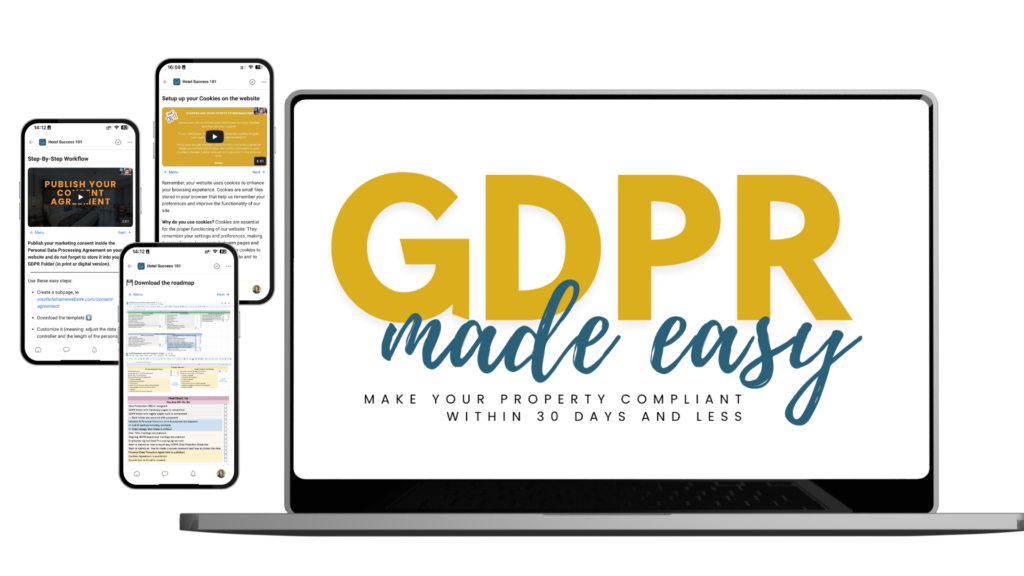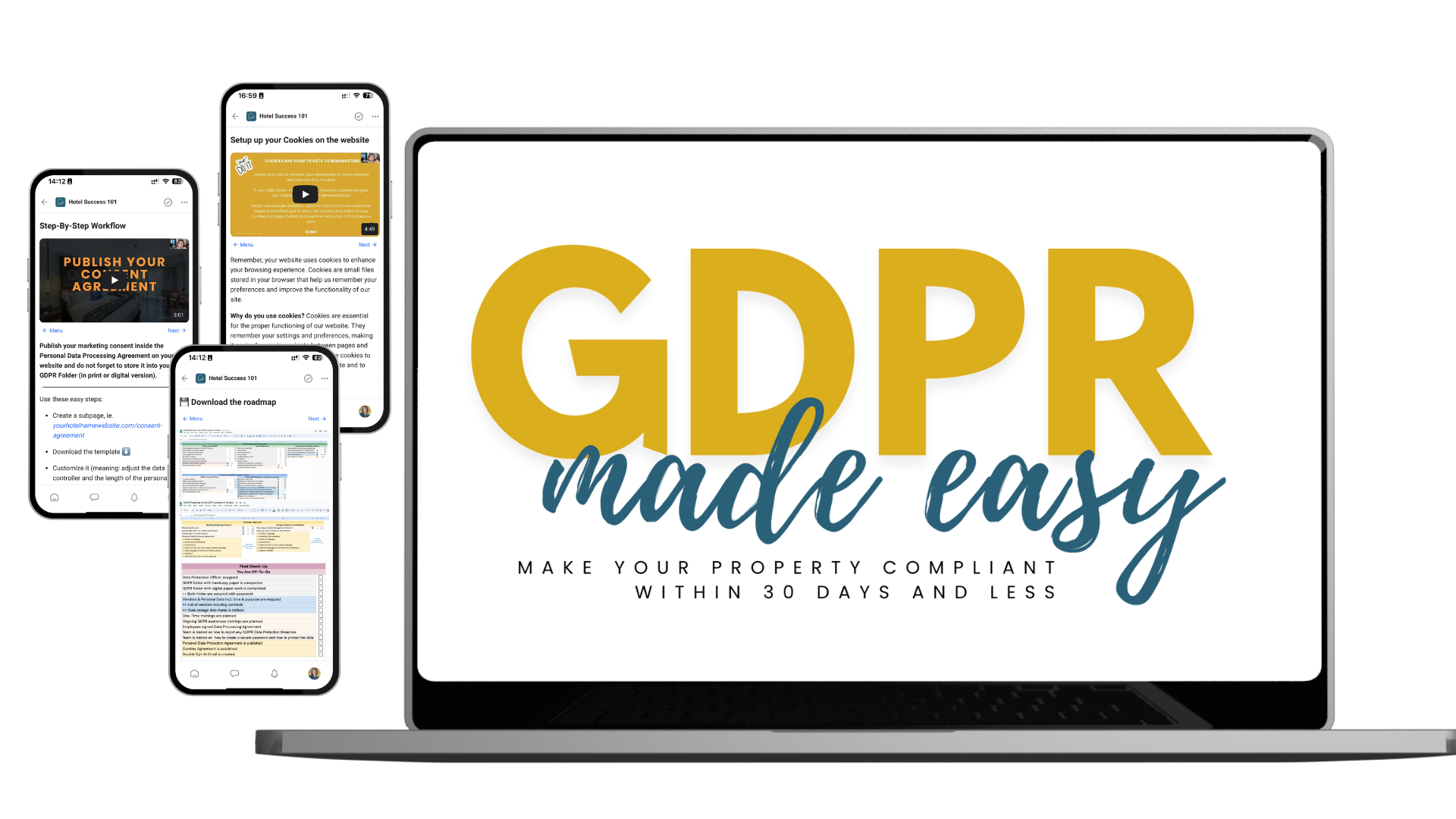GDPR for Hotels and Legal Basis Towards Employees
Imagine you have a big secret diary where you write down everything about your friends, like their favorite colors, what they like to eat, and when they come over to play. Now, imagine you have a rulebook that tells you how you should keep that diary safe and how you can use the information inside.
Well, GDPR is kind of like that rulebook, but for businesses that collect information about people, employees and guests. It’s a set of rules that tells them how they should keep your secrets safe and how they can use them.
Now, this post we’re talking about is like a special book that tells stories about how hotels follow these rules. Instead of just talking about the rules, it shows real stories of what happens when hotels do a good job of keeping secrets safe and when they don’t. It’s like learning from other people’s adventures and mistakes, so we know how to keep everyone’s secrets safe and make sure everyone is happy!
GDPR, or the General Data Protection Regulation, is like a set of rules to ensure that hotels handle people’s information safely and fairly. It’s important because hotels gather many personal details from guests and employees.
When it comes to employees, GDPR says that hotels can collect and use their information, like their names, addresses, and maybe even their bank details, but only for specific reasons. These reasons could include things like paying them their salary or giving them access to work-related stuff.
The legal basis for collecting and using this information usually falls under two categories:
- Contractual Performance: This means hotels can collect and use employees’ information because they need it to fulfill their duties as an employer, like paying salaries, managing schedules, or providing benefits.
- Legal Obligation: Sometimes, hotels have to collect certain information because the law says so. For example, they might need to keep records for tax purposes or comply with health and safety regulations.
So, in simple terms, GDPR helps ensure that hotels treat their employees’ information responsibly, only using it when they have a good reason and keeping it safe from harm.
| Data Process | Legal Basis | Technology (Tool) |
|---|---|---|
| Collecting guest information during check-in | Contractual Performance | Property Management System (PMS) |
| Storing employee personal data (e.g., payroll information) | Legal Obligation | Human Resource Management System (HRMS) |
| Sending promotional emails to guests who opted in for marketing | Consent | Email marketing software (e.g., Mailchimp) |
| Installing CCTV cameras for security purposes | Legitimate Interest | Video surveillance system |
| Tracking employee work hours for payroll purposes | Contractual Performance, Legal Obligation | Time and Attendance Software |
| Managing employee training records and certifications | Legal Obligation | Learning Management System (LMS) |
| Handling guest requests to delete personal data | Legal Obligation | Data Management Platform |
These examples demonstrate various data processes within hotels, the legal basis for handling employee information under GDPR, and the potential technology tools that hotels can utilize to ensure compliance.
Remember: This post is intended for informational purposes only and does not serve as a substitute for professional legal advice. It should not be construed as a legal document and readers are advised to seek appropriate legal counsel for specific legal matters about GDPR compliance in the hospitality industry.
If you want to see how I’m helping hoteliers execute a direct booking strategy and overcome a GDPR legal storm, join me in the “GDPR Made Easy” course before the price goes up!
Act now! The price will increase soon as we continue to add valuable content to the course. Module 1 is already available for immediate access when you join today.
📅 Secure your spot before the next price increase!
⭐ Here’s what you get:✔️ “GDPR Made Easy” is a NEW course ✔️
Pre-sale Offer: Save $100 off the regular price by joining now!
✔️ Price Increases: The price will rise every few days until the course is fully published.
✔️ Instant access to all training videos, templates, and a powerful 30-day roadmap including a very helpful “Map your vendor” template.
So, if you’re a hotel and want to boost those direct bookings and connect with more guests, you NEED to start collecting marketing consent. 📧✨ It’s like getting the green light to share your best offers and exciting news directly with your guests!









